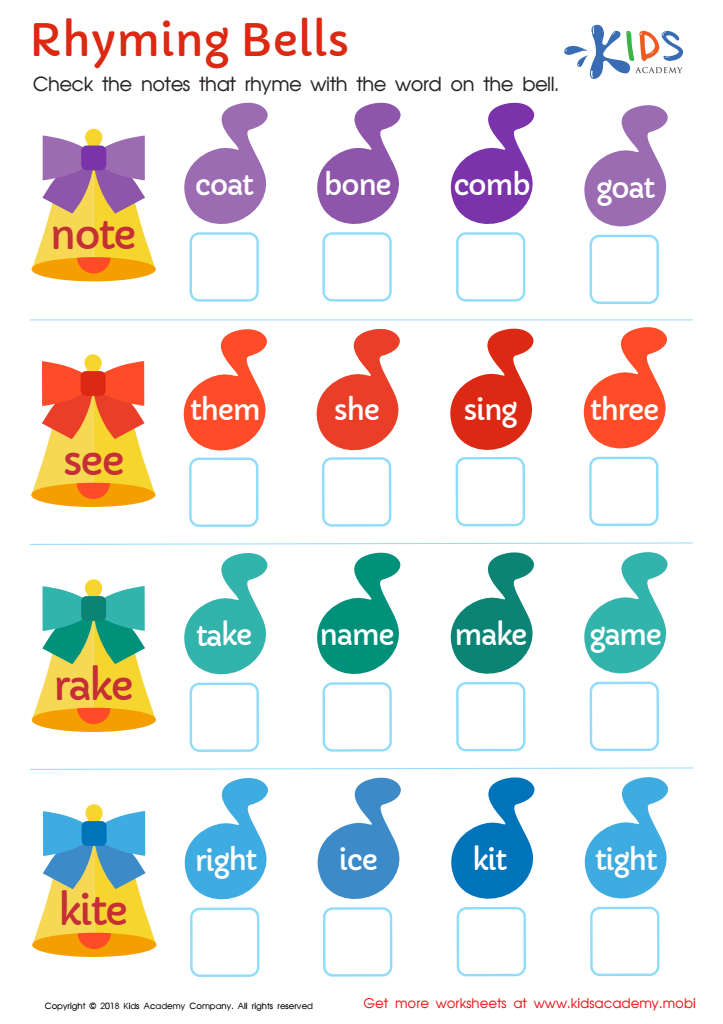Rhyming skills development Normal Rhyming Worksheets for Ages 6-9
4 filtered results
-
From - To
Enhance your child's love for language with our Normal Rhyming Worksheets designed for ages 6-9! These engaging worksheets focus on developing essential rhyming skills, helping young learners recognize and create rhymes while bolstering their phonemic awareness. Fun and interactive, our materials blend creativity with educational objectives, ensuring that kids not only improve their vocabulary but also enjoy the learning process. Suitable for both classroom use and at-home practice, the worksheets are crafted to cater to diverse learning styles. Foster your child's literacy journey and boost their confidence with our comprehensive rhyming skills development resources today!


Rhyming Words Rhyming Worksheet


Rhyming Bells Worksheet


First Words: Picture Rhymes Worksheet
Rhyming skills development is crucial for children aged 6-9 as it lays the foundation for their language, literacy, and cognitive growth. At this age, children are refining their reading and writing abilities, making it essential to enhance their phonemic awareness—the understanding of sound structures in words. Rhyming helps them recognize patterns in sounds, making it easier to decode words and improve spelling skills.
Furthermore, engaging with rhyme fosters critical listening and comprehension skills. When children explore rhyming texts, they develop a richer vocabulary and demonstrate increased phonological awareness, which is linked to later reading success. Through rhyming games and songs, students not only enjoy the rhythm of language but also strengthen their memory and auditory skills.
Additionally, rhyming promotes creativity and self-expression, allowing children to experiment with language, construct their own poems, or engage in storytelling. This playful exploration of words enhances their overall communication skills.
Ultimately, parents and teachers should prioritize rhyming activities because they provide enjoyable and effective learning experiences that nurture a child's educational journey, preparing them for future academic success and fostering a lifelong love of language.
 Assign to My Students
Assign to My Students













